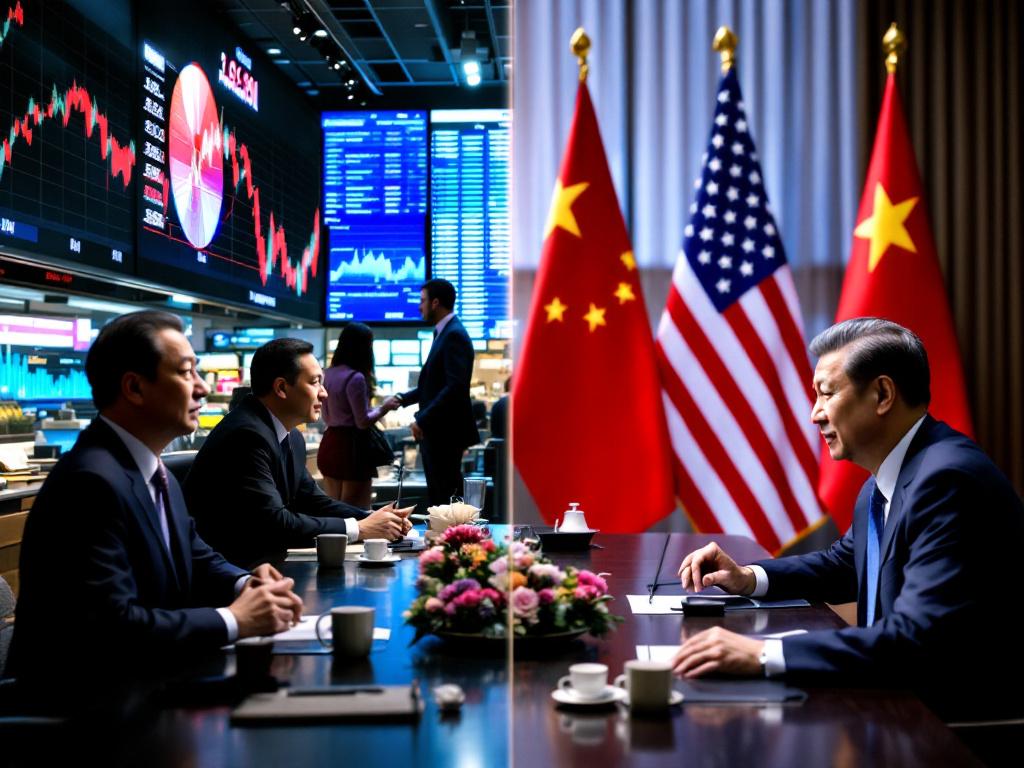Articles in this Cluster
18-04-2025
Asian markets traded mixed on Friday, with Japan's Nikkei 225 rising 1.03% after the country's inflation rate came in at 3.6% year on year in March, above the Bank of Japan's 2% target. South Korea's Kospi and China's CSI 300 were also slightly higher. Shipping stocks in Japan and South Korea rose after US President Donald Trump's administration imposed fees on ships built in China. US markets closed mixed overnight, with the S&P 500 up 0.13%, the Nasdaq down 0.13%, and the Dow Jones down 1.33%.
Entities: Asia, Japan, Nikkei 225, Bank of Japan, South Korea • Tone: analytical • Sentiment: neutral • Intent: inform
18-04-2025
Japan's inflation rate rose 3.6% year on year in March, exceeding the Bank of Japan's 2% target for the third consecutive year. The core inflation rate, which excludes fresh food prices, was 3.2%, in line with expectations. The data comes as Japan is engaged in trade talks with the US, with President Donald Trump having imposed tariffs on Japanese auto, steel, and aluminum imports. A strong inflation figure could allow the BOJ to raise interest rates, but looming US tariffs may constrain the BOJ's room for rate hikes, with analysts revising their outlook for rate hikes downward.
Entities: Japan, Bank of Japan, Donald Trump, US, March • Tone: analytical • Sentiment: neutral • Intent: inform
18-04-2025
China's trade war with the US may have a "silver lining" as it drives Europe and Asian neighbours to strengthen ties with Beijing, improving China's international image. Analysts say Beijing is working to forge alternative trade agreements, and the trade war has created a stark contrast between the US and China, potentially rehabilitating China's image. China's relations with Europe, Japan, South Korea, and Southeast Asia may become closer as a result.
Entities: China, US, Europe, Asia, Beijing • Tone: analytical • Sentiment: positive • Intent: analyze
18-04-2025
Japan has solidified its position as Southeast Asia's most trusted major power due to its "diplomatic consistency" and pacifist stance, amid global uncertainty and rising tensions. A survey by Singapore's ISEAS – Yusof Ishak Institute found that trust in Japan increased from 58.9% to 66.8% this year, with respondents from the 10 ASEAN member states and East Timor citing Japan's reliability as a key factor.
Entities: Japan, Southeast Asia, ISEAS – Yusof Ishak Institute, Singapore, ASEAN • Tone: analytical • Sentiment: positive • Intent: inform
18-04-2025
Japan and South Korea are navigating a delicate balance in the U.S.-China trade war, as China attempts to exploit the situation to drive a wedge between them and their security ally, the U.S. However, Tokyo and Seoul are currently focused on persuading the Trump administration to roll back the tariffs imposed by President Donald Trump.
Entities: Japan, South Korea, U.S., China, Trump administration • Tone: analytical • Sentiment: neutral • Intent: inform
